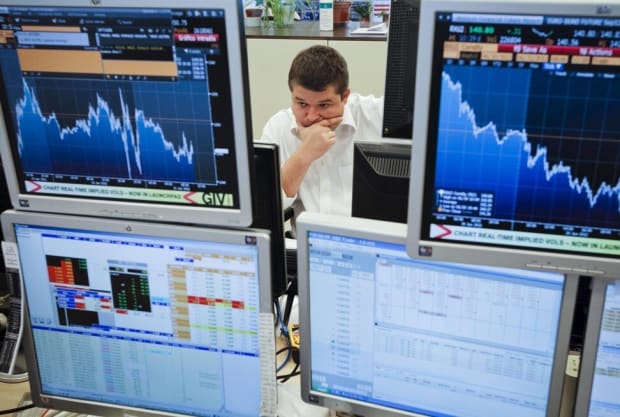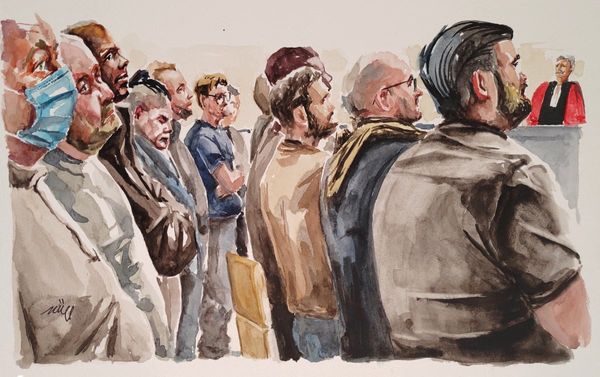It was the battle of David and Goliath.
It was a Homeric battle that held business circles and beyond in suspense.
It happened in January 2021, when the whole world was in lockdown due to the Covid-19 pandemic.
GameStop (GME), a dying chain of video game stores became the stake of a pitched battle on Wall Street.
This saga originated on the social media site Reddit, and in particular, on the WallStreetBets forum, frequented by more than 2 million young traders registered on free brokerage platforms like Webull or Robinhood (HOOD). The people of Reddit had only become infatuated with a cheap stock, when suddenly they discovered that hedge funds, the financial elite, were speculating on the downside of (shorting) their beloved stock.
The insurrection of the stockbrokers against the gratin of Wall Street resulted in a staggering rise in the title and in the rout of speculative funds, afflicted with a loss amounted in billions.
While GameStop stock has come down to earth, the message from Reddit's amateur traders had gotten through: finance had to change if it was to avoid angry outbursts like this. The anger and contest of a generation marked by the disaster of the 2008 financial crisis and by the impunity of the masters of finance.
A More Empowered Stock Market Generation
A year later, advocates of retail investors have taken up the torch while a two-part documentary on the GameStop frenzy, "Gaming Wall Street," produced by former hedge-fund manager John Fichthorn, is available on HBO.
"There's a new cohort of people coming but also just a more empowered generation because of their access to technology and information," explained Stephen Sikes, chief operating officer of investing platform Public.com, during a video interview with TheStreet. "We see that both through their investing behaviors with us at Public.com but we also see that in how they want to engage with the businesses and market structures that they have to."
Public.com is part of an investor advocacy movement and coalition, #WeTheInvestors (www.we-the-investors.org) led by investing information company Urvin Finance, which is launching and publishing an Investor Bill of Rights in a call for comprehensive market reforms aimed at empowering individual investors.
Besides Urvin Finance and Public.com, there is also regulated blockchain infrastructure platform Paxos, institutional equities execution platform Proof Trading, Youtube Creator Matt Kohrs and Gaming Wall Street director Tobias Deml.
The site aims to educate retail investors on critical market issues and guide them in their advocacy for market structure and system reforms, and "to stop the unnecessary portfolio-profiteering that results from market complexity and inefficiency."
This coalition also wants to act as a lobby and put pressure on lawmakers and regulators to modernize the structures and systems for purchasing and holding securities.
"There's a struggle to trust the market right now," said, during a Zoom interview with TheStreet, Dave Lauer, founder of Urvin Finance. "And part of that is because of complexity and lack of transparency. We want to simplify markets and improve disclosures of the things that are important to retail investors."
To Break the 'Duopoly' of Market Makers
Retail investors want to have choice and control over how their positions are held, for example, control over their own data or order routing, and also a direct relation relationship with the companies that they're investing in, according to Lauer, a former high-frequency trader who worked briefly for market maker Citadel Securities.
"They want to be confident that when they buy shares of a company, they're buying actual shares. They want a direct relationship with that company, that they would be able to vote at shareholder meetings; that's what they care about," Lauer said. "Like GameStop last year, there was a huge move to organize the voting of people's shares."
In the crosshairs of defenders of retail investors, is the mechanism of payment for order flow - some call it profit sharing-, which is unique to the US markets where orders are allowed to trade away from public markets.
Basically, retail investors, high-frequency traders, and institutional investors trade against each other at the same time in international markets, but in the U.S, retail orders are allowed to trade privately with market makers, a structure that intends to give retail investors better prices.

Traditionally, retail investors go to their broker and say they want to buy such and such a share or sell such and such a share. This stock is traded on the stock exchange where you can buy it for example at $5.02 or sell it at $4.96. These prices on the stock exchange are called “national best bid and offer,” or NBBO.
They are set by market makers and high-frequency electronic traders who are in the business of buying from sellers and selling to buyers. The difference between the purchase price (offer) and the selling price (bid) is due to the fact that market makers take a lot of risks, they say.
Instead of retail brokers sending their clients directly to the stock market where they will face institutional investors such as hedge funds, they go through market makers who in return pay them to execute their clients' orders.
But for the defenders of retail investors, there is a duopoly among market makers, which is unfavorable for retail investors.
"When a retail investor sends an order to every other broker. That order goes pretty much to Virtu [Financial] or Citadel [Securities] Pretty much. I mean, that's there are a couple of others that make up a little more, but pretty much there's a duopoly," accused Lauer.
"Every market maker, every retail broker directly negotiated agreements. And the way it works, generally, everyone's a little different. But let's say at Schwab, there's a grid of order types, and so limit orders of stocks that are greater than $50 go to this market maker; market orders of stocks that are between 2 and $10 go to this market maker," Sikes explained.
"Like it's literally at that level of like, if it's this component, it goes to this market maker and so it's not this order is going to find which market maker has the best price right now. And so what it does is when you pass that on to the market maker, the market maker has full discretion over what price to give that order within the bounds of NBBO."
"And so they can always do better than NBBO over their full discretion on whether or not to give a better price than NBBO. And there are often, as we found, better prices available than NBBO for given orders and the market makers don't have an incentive, or let's say have a financial disincentive to give that better price."
In addition to Citadel Securities and Virtu Financial, there are other market makers like UBS, Two-Sigma Securities, Susquehanna, Jane Street.
The presence of these players ensures enough competition, industry sources say.

Shutterstock
Additional Disclosures for Better Transparency
Lauer and Sikes believe it is possible to get retail investors better prices.
"We've demonstrated [at Public.com] our interests are aligned with them. So it's been good business and then the other thing we found is that we can deliver really great pricing, right, and we can actually give people better prices on their trades, by virtue of sort of challenging the market structure, the status quo, and doing things a little bit differently and again, in a way that also happens to be totally aligned with our members," Sikes argued.
To restore trust between retail investors and financial bigwigs, the coalition recommends greater transparency, particularly in retail brokerage disclosures, in particular, to ensure that retail brokers get their clients the best prices as required by the SEC.
The best execution obligation requires retail brokers to send their orders to the place where they're going to get the best price. Market makers say if one place is giving a firm the best price versus others it's logical that they're going to overweight the venues that are giving them the best prices for their clients.
But, advocates want to see the data.
"Why aren't brokers disclosing execution quality?" Lauer asked. "They don't want to disclose that kind of stuff because they're not getting best execution. They're getting good enough execution."
"We meet every month to talk about how good of a job we're doing in filling our members' orders. We review data internally with a variety of stats that tell us how we're doing, and whether we're meeting that requirement. Every broker has to do this," Sikes explained, insisting that it's a compliance requirement.
"Those statistics that we review, could very easily be made public. The data all exists. We all use exactly the same statistics. We all actually use the same data platform. It's all consolidated already. We could just flip a few switches and make that data available. Right? The problem is, nobody's required."







